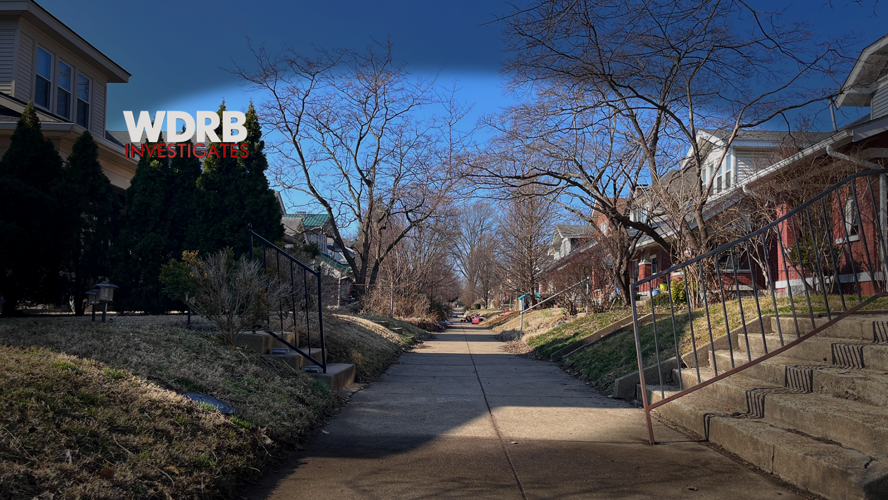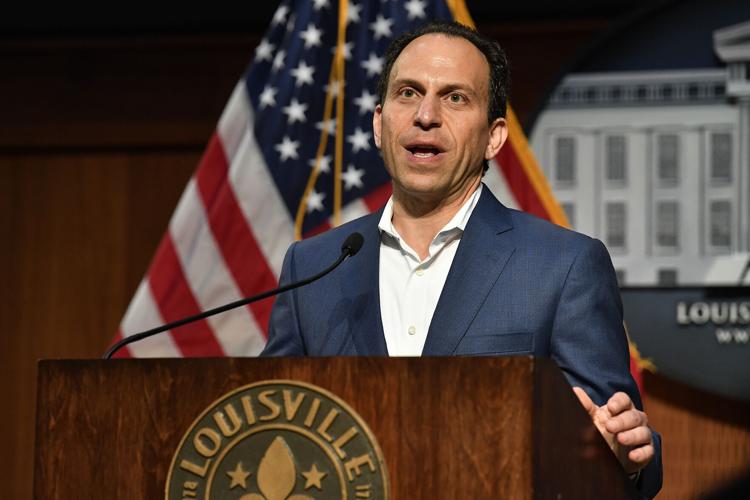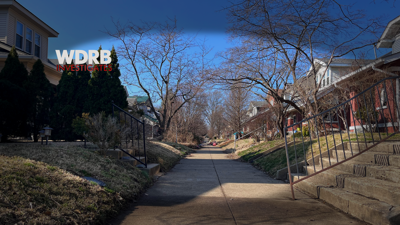LOUISVILLE, Ky. (WDRB) -- Louisville officials would be barred from adopting "missing middle" and other dense housing options for two more years under a bill advancing in the Kentucky legislature.
House Bill 18, sponsored by Rep. John Hodgson, R-Fisherville, extends a one-year pause on density changes to Metro's land development code first enacted by state legislators last year. That freeze will expire in April.
The legislation also adds new barriers for developers seeking to build apartments and other multi-family housing in some parts of the city, giving the Metro Council approval over decisions that had rested with the Louisville Metro Planning Commission.
Hodgson calls his bill an effort to let elected officials have the final say on dense apartment projects in areas with single-family homes that are "changing the quiet character of the existing neighborhoods forever." In some cases, he said, roads and other infrastructure aren't sufficient to handle new developments.
"The single-family zoned neighborhood with local homeownership exemplifies the American dream that many families aspire to," Hodgson said during a hearing this week. "Some suburban areas are seeing attempts to insert high-density apartments and development into these single-family areas, straining the infrastructure to the breaking point."

Kentucky Rep. John Hodgson, R-Fisherville. (WDRB Photo)
But prominent Louisville organizations like the Building Industry Association of Greater Louisville and the Metropolitan Housing Coalition advocacy group are pushing back against the legislation, warning it will reduce housing stock and make it difficult to create affordable housing.
Tony Curtis, the housing coalition's executive director, wrote in a letter to lawmakers that the bill "is aimed at preventing diverse types of housing" and builds on "exclusionary zoning practices." He argues HB 18 works against the goals of the state's housing task force, according to a copy of the letter he provided WDRB News.
"It will just make it harder and harder for people who are looking for housing of all types — whether it's entry-level housing, apartments or single-family homeownership housing — to get access to what they actually need right now," said Juva Barber, executive vice president of the building association, which represents homebuilders.
What the bill does
The legislation does several major things:
It extends the moratorium on changing Louisville's land-use rules until April 15, 2027. That pause only would apply to modifying zoning districts to allow more density — such as the number of residential units per acre.
It says any apartment or multi-family development in Kentucky proposed in an area "traditionally" made up by single-family homes must be approved by local fiscal courts or city councils if those projects increase emergency response times or traffic congestion. In most cases, local appointed planning commissions now handle those approvals.
It bans property owners in Kentucky from leasing multi-family units or accessory dwelling units on lots zoned for single-family homes unless the owners live there.
"We all know we have such a housing deficit, not just here in Jefferson County but in the state," Barber said. "This is a state bill, so it would have a statewide impact."
Other opponents include the conservative-leaning Americans for Prosperity's Kentucky chapter. Liam Gallagher, its legislative director, told lawmakers this week that the bill "imposes strict new zoning rules that would hurt housing development and limit property rights across our communities."
Gallagher framed the debate as a free market one.
"Having enough housing choices is crucial for the development of thriving communities and upward social mobility," he said. "Such choices should not be constrained by unnecessary government hurdles."
The bill passed out of the House local government committee Tuesday, with 14 members voting in favor, four voting against and two not voting. It is awaiting action on the House floor.
Extending Louisville's moratorium specifically would affect Louisville Mayor Craig Greenberg's plan to make changes to the land development code, the wide-ranging set of rules for land use in Jefferson County.

FILE - Louisville Mayor Craig Greenberg speaks to reporter during a news conference, May 23, 2024, in Louisville, Ky. (AP Photo/Timothy D. Easley, File)
The mayor has proposed allowing "missing middle housing" — projects like small duplexes, triplexes and fourplexes — on land now zoned for single-family homes in an attempt to ease Louisville's affordable housing shortage.
As the bill is written, "it will make it harder to bring housing units online," said Metro Council member Andrew Owen, D-9, chair of the council's planning and zoning committee.
"There are parts of House Bill 18, like the extension of the moratorium, that I strongly oppose," Greenberg told reporters this week, adding that his staff is "actively in conversations" with Hodgson about changes to the bill.
"I'm still trying to find ways where they can help us make it easier in other parts of the city where we know we need more density, where we need more housing as well," Greenberg said.
Hodgson said his bill doesn't affect infill development and apartment proposals in areas currently zoned for them.
Louisville incentive program targeted
The part of the legislation giving final say to local elected officials on some housing projects would affect a Louisville program meant to allow apartments as part of larger subdivisions in areas zoned for single-family homes.
The Mixed Residential Development Incentive (MRDI) program lets those multi-family developments get built without a zoning change — a sometimes contentious process that ultimately is decided by the Metro Council.
In Louisville, the planning commission now is the final stop for those projects.
But Hodgson contends the commission — a body appointed by Louisville's mayor and confirmed by the Metro Council — ought to cede that role to the council.
Essentially, developments that now are allowed multifamily components by city rules would be treated as though they're zoning changes — requiring additional government oversight at the Metro Council.
"I like to put those kinds of decisions in the hands of elected officials," he said. "They have to face the public, as opposed to appointed officials that feel no repercussions for their decisions."
In an interview, Hodgson said there have been several examples of developments he believes don't fit the area. In recent years in Hodgson's district, the incentives have been used for a 148-lot, 80-townhome subdivision on Eastwood Fisherville Road and a controversial 112 apartment unit plan as part of 125 proposed residential building lots.
Rep. Jared Bauman, R-Louisville, voted in favor of the bill in committee this week, saying he believes his constituents in southwestern Jefferson County support the measure.
"You are going to strengthen their position to push back against these developments that end with three-story apartments overlooking homes that have been in that neighborhood for 60, 80 years," he told Hodgson.
Also voting in favor was Rep. Susan Witten, R-Louisville, who said the legislation adds "guardrails" for dense housing proposals.
"I just think that when developments come in, it should be specifically approved by the elected body of council, and that is what your bill does," she said.
Among those voting against was Rep. Rachel Roarx, D-Louisville, who said she's not against giving citizens a greater voice on planning and zoning matters.
"However, I have been in the past and continue to be against putting the moratorium on Louisville Metro for making their changes to the land development code," she said.
Another Democrat from Louisville, Rep. Sarah Stalker, also referenced local decision making in explaining her vote against the bill.
"I don't know how in good faith this body can continue to advocate how important it is for local control and talk about the issues that that that we have before us with the housing crisis and then overstep," she said.
"I think overreach is what we're doing with this bill."

House Bill 18, sponsored by Rep. John Hodgson, R-Fisherville, extends a one-year pause on density changes to Metro's land development code first enacted by state legislators last year. That freeze will expire in April.
Copyright 2025 WDRB Media. All Rights Reserved.




